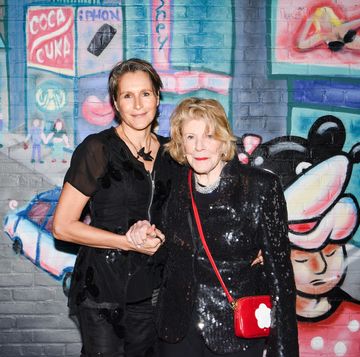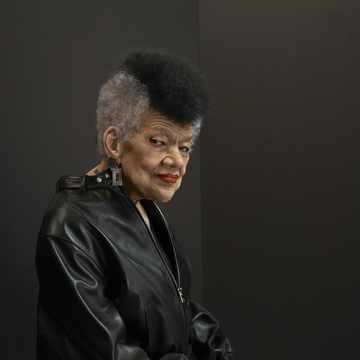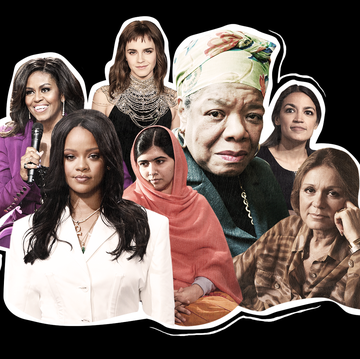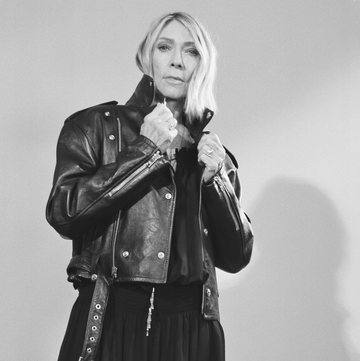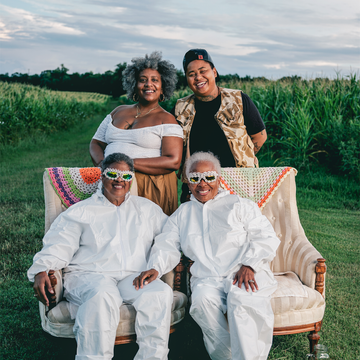I ENVY, THEREFORE I AM. We are all guilty of wanting what others have—nicer homes, better-behaved children. But lately a new breed of jealousy has come to town. Let's call it divorce envy: the uncomfortable feeling that someone else's marriage is ending in a more graceful way than your own.
In an era when child centrality reigns supreme and many Gen X–ers bear scars from their own parents' hostile uncouplings, the goal for a growing number of separating parties is no longer merely to "get through" a divorce but to emerge from it triumphantly at peace, having handled the dissolution of their marriage calmly, reasonably, and even lovingly. Laura Wasser, a Los Angeles divorce lawyer whose clients have included Angelina Jolie, Heidi Klum, and Kim Kardashian, says she has seen an uptick in requests for low-conflict settlements. "A huge part of it has to do with the communication skills of our generation," Wasser says of her fellow fortysomethings. "We grew up with therapy and divorce, and we have better tools to communicate as a result."
The new poster girl for the "good" divorce is, of course, Gwyneth Paltrow, whose "conscious uncoupling" from Coldplay frontman Chris Martin in March, announced during a family vacation in the Bahamas, seemed almost preternaturally serene. They were hardly the first, however: In 2011, model Karen Elson and musician Jack White attempted to handle their split so cordially that they threw a "divorce party" to celebrate it—together.
But while the couplings and uncouplings of the rich and famous might seem shinier than our own, divorce envy isn't necessarily an extension of celebrity worship. A separating mom may become jealous of a co-worker whose mediation is going smoothly or of a friend who's getting the postmarital support she asked for. And even though the appeal of a "good" divorce is at least partly financial—"Most people who come to me would rather buy a pair of Louboutins than pay me for another hour," says Wasser—it's also about maintaining stability for one's children, not to mention one's social standing. (A drama-free split doesn't force friends to choose sides.) Lisa Brateman, a psychotherapist and relationship specialist in New York, says that the phenomenon perpetuates itself. "Clients who see other couples go through seemingly amicable divorces may realize there are better ways to go about it than vengeance and retaliation," she says. "It doesn't have to be like The War of the Roses."
Except for when it does. The problem with believing that divorce is something you can be "good" at is that messy breakups become even more taboo. Take my friend Greta*, 46, who has been estranged from her husband for several years. She wants a divorce, but they have three children and she's worried that he may seek $75,000 a year in spousal support, as she is the primary breadwinner. He can't afford to move out, so he's still sleeping on their couch. Meanwhile, she knows a couple who bought a brownstone together after beginning to end their marriage. The wife lives on one floor, her soon-to-be ex-husband on another, the kids in between. "I would love to have the resources to do that, but I don't," Greta says. Lately, she adds, her goal has been "unconscious uncoupling. That's when you drink a lot of wine and pretend none of it is happening."
Madeline*, another mother in her 40s, was so reluctant to reveal her difficult separation that she kept it secret from all but her closest friends. "Among my peers, it seemed like people only divorced because they fell out of love or grew apart, not because the husband turned out to be a bipolar alcoholic," she says. "I didn't want to be an outcast." The shame of going through a not-so-good divorce when others seem to be handling theirs with a kind of cool, friendly efficiency may make some women feel isolated. Some professionals, though, see it as an incentive for couples to lay down their weapons. "If divorce envy leads to more people doing mediation, it could be a wonderful opportunity," says Joy Rosenthal, founder of Rosenthal Law & Mediation and president of the Family & Divorce Mediation Council of Greater New York. In fact, she recently got two new clients thanks to a woman whose divorce she mediated last fall. "They came to me and said, 'We want to do our divorce like she did.' "
As for those who believe that their marital troubles are, well, too troublesome for the high road, they can take solace in one inevitable truth: Divorce is hard. No matter how swift and calm the settlement may be, staying on good terms after a painful split with someone you've fallen in and out of love with—or with whom you've, at the very least, shared children or property—requires another form of commitment. The work doesn't end once the papers are signed. "Divorce is inherently unholistic," says Madeline. "And if you think it's holistic, you're probably very early on in the process."
*Names have been changed


